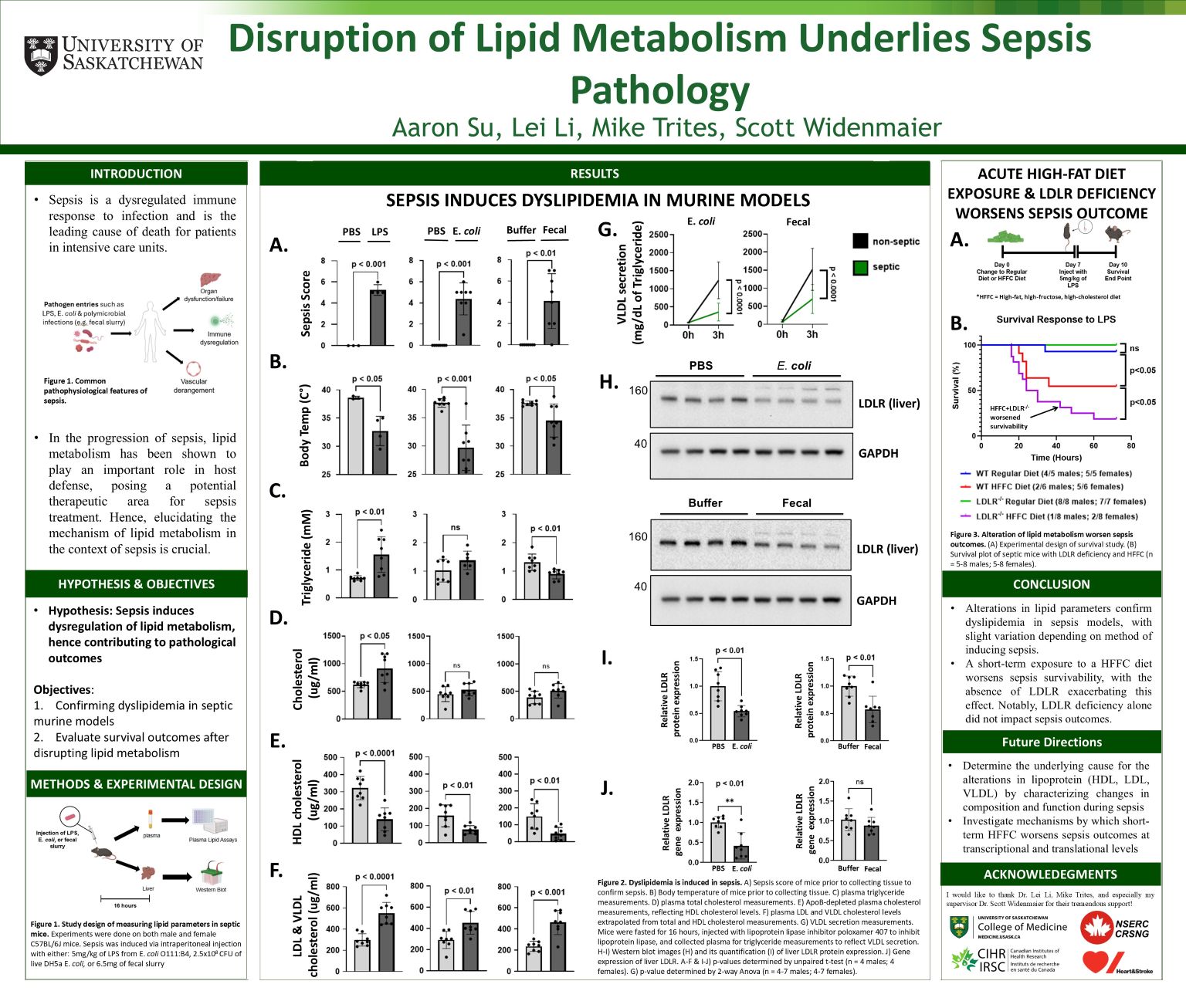
Disruption of Lipid Metabolism Underlies Sepsis Pathology
Shennan (Aaron) Su
Sepsis is a dysregulated immune response to infection that can lead to multi-organ failure and is the leading cause of death for patients in intensive care units. Emerging evidence suggests that lipid metabolism plays an important role in host defense during sepsis, offering potential therapeutic areas for sepsis treatment. In this project, we hypothesize that sepsis contributes to pathological outcomes and worsens survival outcomes by disrupting lipid metabolism.
To investigate this, C57BL/6J mice were subjected to sepsis, and liver tissue and blood were collected for lipid analysis. To assess the impact of impaired lipid clearance and dietary fat, LDL receptor (LDLR)-deficient mice were fed a high-fat diet for 7 days prior to sepsis induction. Survival was monitored over 72 hours.
Results show deviations in lipid profiles between septic and non-septic mice, indicating that sepsis disrupts lipid metabolism in the murine model. Wild-type mice fed a high-fat diet prior to sepsis induction showed a marked increase in mortality. This effect was further exacerbated in LDLR-deficient mice on the same diet, suggesting a synergistic interaction between dietary factors and the absence of functional LDLR. Future investigations will focus on characterizing changes in lipoprotein composition and function during sepsis.
